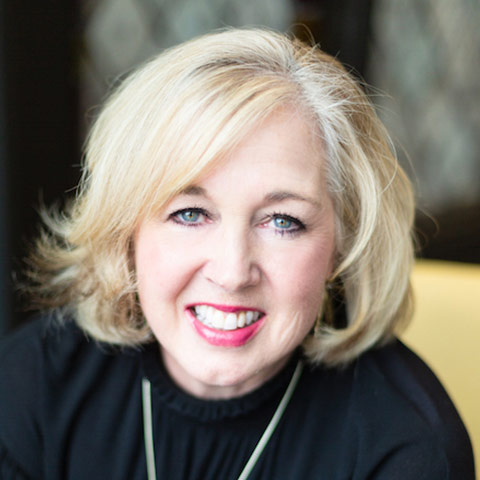It’s not easy to confess I’ve become the “older” leader in many of my leadership circles. My pastor is younger than me, many of my coworkers are younger than me, and many of my ministry team falls into that “younger” category. I’m not sure when this shift actually happened, but I’m definitely more aware that my years of experience are something I need to embrace instead of reject.
I often hear older people make the comment, “I will NEVER be the older person,” or they will never see themselves as an older adult. I get that people want to be young in spirit, but not accepting your age is either denial or foolishness. Scripture reminds us in Job 12:12, “Wisdom is found with the elderly, and understanding comes with long life” (CSB). I may not consider myself elderly, but I have lived long enough that I pray my experience will be helpful to those who are younger.
In the same way, younger women offer a wealth of opportunities and ideas for their mature leaders. Even Paul reminded his young apprentice Timothy, “Don’t let anyone despise your youth, but set an example for the believers in speech, in conduct, in love, in faith, and in purity” (1 Tim. 4:12, CSB). If you’re a younger leader, you have a lot to offer! I work with many younger women, and I am a better leader because of what they bring to the table. Even so, you might wonder how you can actually lead older women. You might be intimidated to step up to the challenge, or you might feel your input isn’t valued. I hope that’s not the case. Instead, I want to give you some ideas on how you can navigate leadership opportunities in this exciting season of your life.
1. Honor the past and respect the experience of older leaders.
There’s nothing that will shut down your leadership like coming across as a “know-it-all.” Before you downplay traditions or processes, first ask good questions about “why” they are important to older leaders. I once heard an older leader joke about how younger women didn’t want to wear name tags at a Bible study. She allowed the younger leaders to have their way, and within a few weeks, they realized women still didn’t know each other. Needless to say, there was a reason name tags were important in that particular context, and the older leader smiled when a mutual understanding brought back the name tags.
This also applies to the way different generations live out their work habits. I find it hard to work with the same amount of flexibility as younger leaders. I was taught to be at my job between certain hours, and I enjoyed spending time with coworkers in the office. Coming in late or leaving early wasn’t an option. Working from home wasn’t an option. This isn’t the case today. Younger leaders demand flexibility at work and struggle with why older leaders want them to attend meetings in-person or stay late in the office. Be patient with your older leaders who were once evaluated on their work ethic and performance from 8 a.m. to 5:30 p.m.—even if it seems unrealistic to you.
2. Display professionalism.
In some ways, this encompasses some of the same principles as the first point. If you want an older generation to respect your leadership, consider the way you conduct yourself in the office or even when you are working from home. Because our workforce is now working from home in light of COVID-19, I’ve been on a lot of video conference calls. I have noticed that many of the women my age still get up and get ready for work—even from home. They appear on screen having taken a shower, put on makeup, and dressed in clothes that aren’t just for the gym. If you want to be taken seriously, dress the part of a leader. I was always taught that you should dress for the job you want to have, not the job you currently have. Other tips include showing up on time and taking notes during meetings. I’m always amazed when a younger leader shows up to a meeting without a pen and paper. There’s nothing wrong with taking notes on your laptop, but typing in the midst of a meeting can be distracting, and others may wonder if you’re looking at emails rather than engaging in the conversation.
Professionalism also involves a level of commitment to your organization. I have a brother-in-law that is the president of a large hospital. He deals firsthand with the effects of hiring young men and women who are more concerned about their “next” job than the one they have. It’s natural to have aspirations, but he has often told me that many young leaders he encounters are more interested in getting promoted quickly than taking the time to learn their current job. Instead, be patient in the process and be the best you can be where God has placed you. Allow Him to open the doors of opportunity, and if you do the other things, older leaders will put you ahead of the line when considering promotions.
3. Be prepared.
Most older leaders I know want to hear from younger leaders, so when the opportunity arises, be prepared. Have suggestions in place and explain how you can improve the organization. This is also where younger leaders can shine—especially because many of them have an advantage in the area of technology. Many younger women can suggest more efficient processes because they are aware of new work practices that can streamline outdated technology. For instance, last week I tried scheduling some online meetings with outside leaders. I was overwhelmed at the response and found myself in the habit of doing things a more time-consuming and hard way. After it was over, a younger leader suggested a scheduling app that would have made my life so much easier. I wish she had stepped up earlier! I’m also in the midst of learning how to create a video that will be used for online training. I was grateful for a younger leader who gave me tips on what equipment I needed and how to make the video look more professional. I made a couple of quick online purchases for less than thirty dollars and am now more confident about the whole process.
4. Be bold enough to spend time with older leaders.
One of the most encouraging things younger leaders have done is approach me and ask to spend time with me. I’ve had several coffee meetings and lunches with younger leaders who genuinely wanted to get to know me and learn from me. They took the time to seek me out and make an effort. I’ve learned from them, and I’m challenged to be more intentional about being the one who seeks them out first. Most of what you learn in leadership will be through relationships, so build a network of leaders from whom you want to learn and seek them out. They will be honored when you do.

Kelly D. King is the Manager of Magazines/Devotional Publishing and Women’s Ministry Training for Lifeway Christian Resources. She is the author of Ministry to Women: The Essential Guide for Leading Women in the Local Church. You can hear Kelly at Lifeway’s You Lead events that are held in several cities around the country or listen to her co-host the Marked Podcast with Elizabeth Hyndman.

